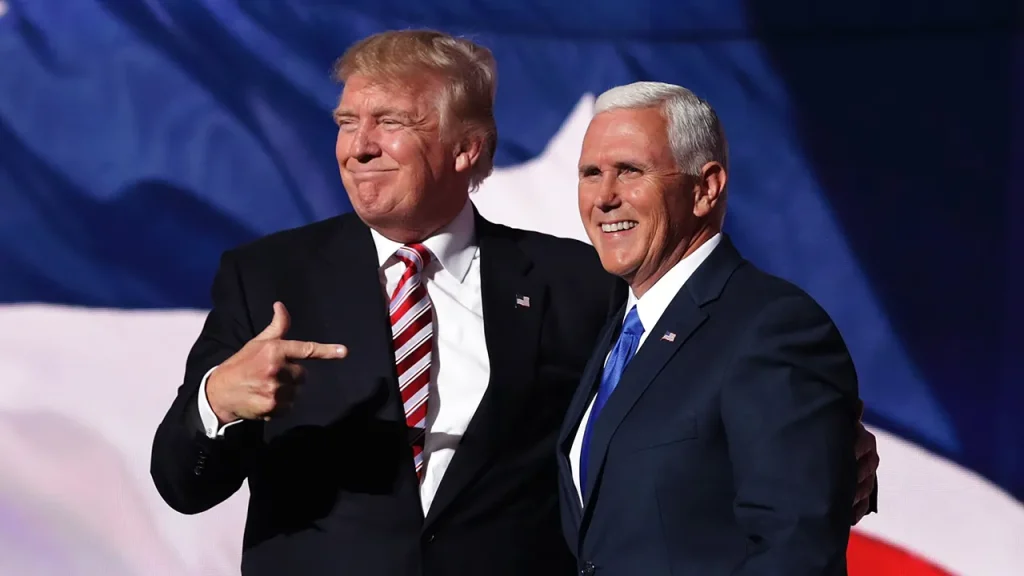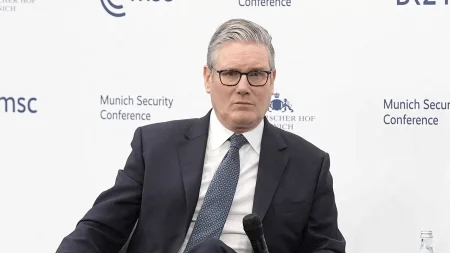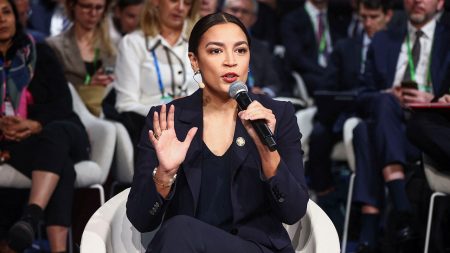Former Vice President Mike Pence expressed strong support for the aggressive tariffs proposed by President-elect Donald Trump, specifically targeting China, during a recent address to the China General Chamber of Commerce. Pence emphasized that the U.S. must approach its complex relationship with Beijing with caution and wisdom. He articulated a belief that while China represents a rival and economic adversary to the United States, it should not be perceived as an outright enemy. He assured that Trump’s hardline approach could ultimately lead to an improved relationship with China, countering notions that the proposed tariffs would escalate tensions between the two nations.
Pence’s remarks coincide with Trump’s announcement of imposing hefty tariffs on imports from Mexico and Canada as part of a broader trade strategy. Specifically, Trump indicated that he plans to implement a 25% tariff on goods from these neighboring countries until they enhance their border control measures. This move has raised concerns among various stakeholders, including President Biden, who warned that such tariffs could jeopardize the existing U.S.-Mexico-Canada Agreement (USMCA), which facilitates duty-free trade among the three countries. Additionally, Trump stated that China would face a new 10% tariff as part of broader efforts to address illegal fentanyl smuggling.
Tariffs function as a tax on imported goods and are a means for the government to deter certain imports. However, the costs associated with these tariffs are often passed onto consumers, ultimately raising prices for American households. Research from the Tax Foundation revealed that the Trump administration had already enacted approximately $80 billion in new taxes from tariffs on various goods in 2018 and 2019. The Biden administration has maintained these tariffs and, along with new measures, added additional taxes on $18 billion worth of Chinese imports.
Currently, U.S. trade policies are characterized by a substantial increase in tariffs, totaling around $79 billion, which translates into an average annual tax increase of approximately $625 on American households. Recognizing concerns from both American and Chinese businesses about the potential economic harm caused by these tariffs and fears of a full trade war, Pence reassured attendees that these measures are essential for prompting China to engage in negotiations regarding trade abuses.
Pence acknowledged the short-term difficulties that the proposed tariffs might impose on the economy but remained optimistic that the long-term benefits would outweigh these challenges. He echoed his past experiences working with Trump, noting his confidence in the president-elect’s ability to weave together diplomacy and assertive economic policies effectively. He underscored that the goal behind the tariffs is not to create a climate of isolation for China but to invite reform and cooperation for the betterment of relations between the two nations.
Ultimately, Pence’s address highlighted a bipartisan concern over the balancing act required to manage U.S.-China relations through tariffs. He positioned the proposed economic policies as necessary tools in the pursuit of more equitable trade practices, intellectual property protection, and a more collaborative future. Pence expressed a fundamental belief that a firm yet fair approach is essential for fostering meaningful dialogue and progress in U.S.-China relations, underscoring the broader implications of these trade strategies for both nations’ economies.















